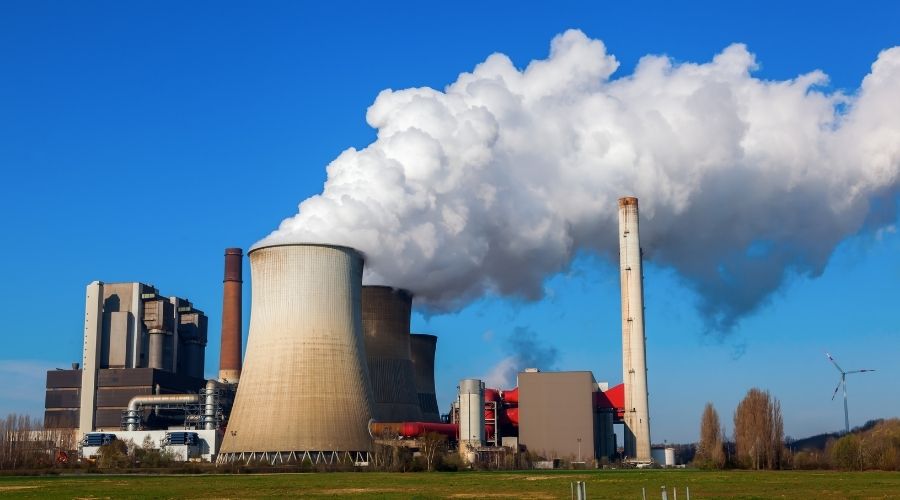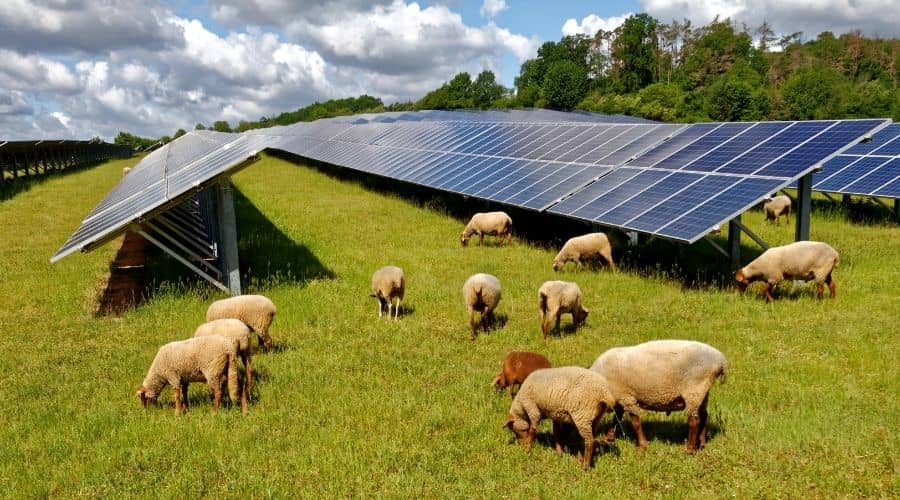
For over a century, burning fossil fuels has been the primary source of energy used to propel our cars, power our businesses, and keep the lights on in our homes. Today, oil, coal, and gas provide for about 80% of our energy needs. So it’s clear why most people wonder why fossil fuels are bad.
Continuous use of fossil fuels has exacted an enormous toll on humanity and the environment. From health risks to air and water pollution to global warming, the dangers of fossil fuels are far-reaching.
Here’s a look at what fossil fuels are, what they are used for, their effects, and why it’s time to move toward a clean energy future.
Why Are Fossil Fuels Bad for the Environment?
Fossil fuels such as oil, gas, and coal are found underground and have to be unearthed, processed, and moved. This process takes an enormous toll on our ecosystems. It requires leases vast stretches of land for infrastructures such as wells, pipelines, access roads, and more.
Additionally, entire swaths of terrain—including forests and whole mountaintops—are scraped and blasted away during strip mining to expose underground coal or oil.
Fossil fuel combustion causes illnesses such as aggravated asthma, chronic bronchitis, and sometimes even death when inhaled.
What Are Fossil Fuels Used for?
Fossil fuels are rock-like, gas or liquid resources burned to generate power. They include oil, natural gas, and coal. Fossil fuels are used as a significant energy source in the electricity and transportation sectors.
From the electric lights in your home to the car you drive to the equipment you use in your office, you continuously rely on fossil fuels.
Effects of Fossil Fuels
While fossil fuels cater to many of our everyday needs, they also cause many environmental and health problems and even affect animals. These are some of the significant disadvantages of fossil fuels.
How Do Fossil Fuels Affect the Environment?
One of the most significant effects of fossil fuels is their toll on the environment. First, coal, oil, and gas development pose myriad threats to our waterways and groundwater. During coal mining, acid runoff makes its way into streams, rivers, and lakes, polluting groundwater. Oil spills are pretty standard when oil is being extracted or transported. These spills can contaminate drinking water sources and jeopardize entire freshwater or ocean ecosystems.

Secondly, fossil fuels emit harmful air pollutants during extraction and transportation. On average, 12.6 million Americans are exposed to toxic air pollution from active oil and gas wells and transport and processing facilities daily. The combustion process releases carbon dioxide, aggravating the current global warming crisis further. The carbon emissions trap heat in the atmosphere and lead to climate change. In the United States, the power and transportation sectors account for about three-quarters of carbon emissions from burning fossil fuels.
Effects of Fossil Fuels on Human Health
Endangered human health is another problem with fossil fuels. The environmental pollution from fossil fuels impacts humans by causing illness and death when the fumes from burning fuels are inhaled. Health effects include premature death, acute respiratory disease, aggravated asthma, chronic bronchitis, and decreased lung function. There are about 7 million global deaths caused by air pollution annually. The health impacts of fossil fuel-generated electricity cost the United States about $886.5 billion.
Effects of Fossil Fuels on Wildlife
Fossil fuels impact wildlife through ocean acidification. About a quarter of the carbon dioxide emitted from fossil fuels is absorbed by the ocean, changing its chemistry (pH). The high acidity makes it harder for marine organisms to build shells and coral skeletons.
Oil spills have also affected communities and wildlife, destroyed habitats, eroded shorelines, and resulted in beach, park, and fishery closures. The largest oil spill in history released 134 million gallons of oil into the Gulf of Mexico, killing 11 people and countless birds, turtles, fish, marine mammals, and plants.
What Happens if We Continue to Burn Fossil Fuels
These fuels may make our lives easier, but the cons of fossil fuels will soon outweigh the gains if we continue to burn them. The more fuels we burn, the more carbon dioxide will be released into the atmosphere, and the more aggressive climate change will get. Climate change has continued to disrupt ecosystems and poses a considerable health threat to humans.
What Are Some Alternatives to Fossil Fuels?
To reduce the impact of fossil fuels, we need to adopt safer alternatives that cause less damage—if any. The main alternatives to fossil fuels are solar power, wind power, hydrogen gas, geothermal power, natural gas, and nuclear power. Here are a few advantages of each.
Solar Power
Solar power is one of the most common alternative energy sources. This energy is entirely renewable, and while the costs of installation may currently be high, they are outweighed by the money saved in energy bills from electricity generated from fossil fuels.

Wind Energy
Wind energy is becoming increasingly popular. It’s a renewable source of energy and generates no waste.
Hydrogen Gas
Hydrogen is an entirely clean-burning fuel, and once produced, it emits only water vapor and warm air when in use.
Geothermal Power
Geothermal power is energy from extracted from the hot reservoirs within the Earth. These reservoirs are naturally replenished, making geothermal power both renewable and sustainable. A geothermal power plant produces relatively low pollution when compared to fossil fuels.
Natural Gas
Natural gas is becoming a more viable alternative energy source, especially in cars, to reduce carbon emissions.
Biofuels
Biofuels make use of animal and plant life to create energy. Biofuels are renewable because plants can be regrown every year. Unfortunately, they require dedicated machinery for extraction, which emits carbon even if biofuels themselves don’t.
Nuclear Power
Nuclear power is one of the most low-carbon energy sources and has one of the smallest carbon footprints. It’s also very cost-effective.
What You Can Do to Reduce the Use of Fossil Fuels
If you’ve been wondering why are fossil fuels bad, now you know. With this knowledge, it’s time to take action to minimize the effects of these fuels. So what can you do to help?
Change Your Habits (H3)
The first thing you need to do is change your daily habits in the following ways:
Conserve energy
One crucial step you can take to minimize the use of fossil fuels is to conserve energy. You can do this by:
- Turning off lights, computers, televisions, video games, and other electrical equipment when they’re not in use.
- Buying energy-efficient equipment, including lightbulbs, air conditioners, heaters, refrigerators, and washing machines.
- Limiting the use of air conditioning.
- Installing a programmable thermostat.
Drive less
Cars produce significant amounts of nitrogen oxide emissions. To help cut down on air pollution from vehicles, drive less by:
- Consolidating driving trips
- Carpooling
- Taking public transportation, such as buses and trains.
- Walking or biking.
Use clean energy
Consider switching to any of the alternatives to fossil fuels mentioned earlier.
Use Your Voice
Having the right policies can make dramatic progress toward a clean energy future. Use your voice to petition governments, councils, and other lawmakers to create policies that support clean energy and limit the use of fossil fuels.
Burning and producing fossil fuels of any sort has long-standing negative impacts on climate change, air quality, and public health. By changing your daily habits and relying more on clean energy, you’ll help reduce the demand for fossil fuels.
You Might Also Like:

![]() Stella - Writer
Stella - Writer
Stella is a writer and mother from Thika, Kenya.
Her love for nature and the beautiful Kenyan outdoors has inspired Stella to consciously make an effort to lead a more sustainable, eco-friendly lifestyle.


